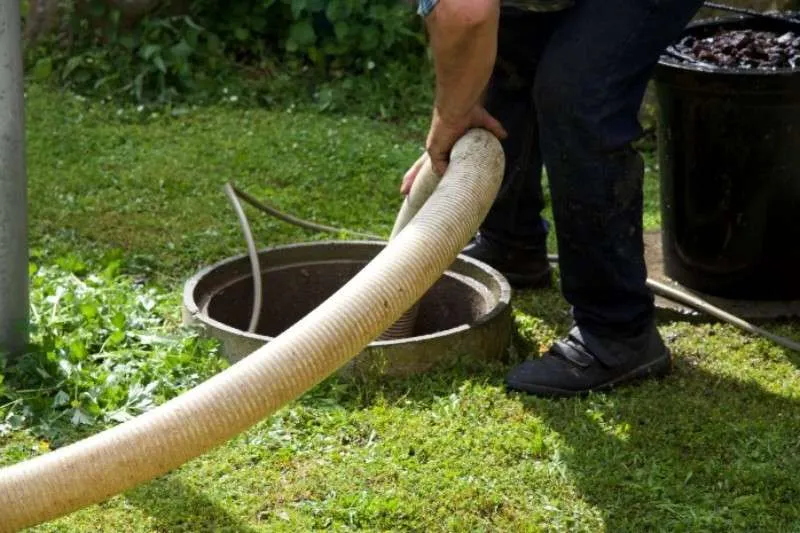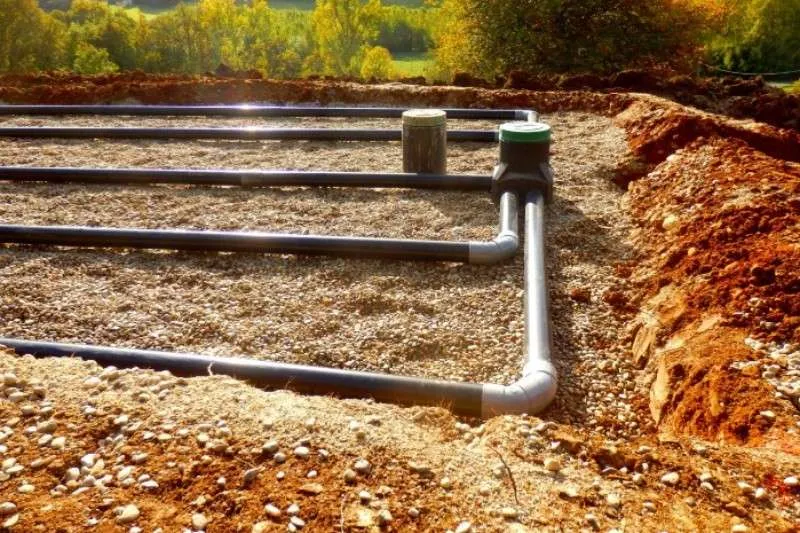You may not think much about your home’s septic system, but it is vital in keeping your property and environment clean and healthy. Neglecting to pay attention to the warning signs of septic failure can result in serious health concerns and costly repairs.
Knowing what symptoms to be aware of, how regularly to get inspections done, and how best to repair any issues are essential for responsible homeownership.
In this blog post, you will learn about all of these aspects to keep your system running smoothly all year round.
Introduction to septic system failure
Septic systems are the foundation of many homes and businesses. They can become dysfunctional and cause health and environmental problems without proper maintenance. This article will discuss warning signs of septic system failure and solutions to prevent costly repairs or replacements.
The importance of recognizing and addressing septic system failure cannot be overemphasized. Failure to do so can lead to various environmental issues, from groundwater contamination to odor pollution. Septic system failure may result in costly repairs and replacements. Therefore, property owners need to recognize warning signs of septic system failure and take action accordingly.
Common causes of septic system failure include bad soil conditions, improper installation, and maintenance, tree roots invading pipes, flooding, invasive species of plants or bacteria, and foreign objects in drains. Bad soil conditions can cause poor drainage, resulting in wastewater and solid waste buildup. Improper installation and maintenance is another major reason for septic system failure.
Tree roots can invade pipes and block them, leading to clogs. Flooding can also damage septic systems. Invasive species of plants or bacteria may enter the plumbing system and damage it from within. Lastly, foreign objects in drains, such as wipes, diapers, feminine products, etc., can lead to blockages.
Warning signs of septic system failure
Septic system failure can be a major inconvenience or worse, depending on its severity. To prepare for potential septic tank problems and avoid costly repairs, it’s important to watch out for warning signs of septic system failure.
Indoor signs of septic system failure include slow drains, gurgling sounds from the toilet or other drains, or strong sewage odors. If you notice any of these issues, it’s important to address them quickly and contact a professional for inspection and repair.
Door signs of septic system failure include wet spots in your yard, standing water all over the drain field, and lush vegetation growing over the area, usually caused by too much water or unpleasant smells. If you notice any of these issues, it’s important to address them quickly and contact a professional for inspection and repair.
Once the underlying cause of septic system failure has been identified, several potential solutions can help restore proper functioning. These include repairing damaged components such as broken pipes or cracked septic tanks, installing new components such as a filter or additional baffles, and adding beneficial bacteria to the system.
The best way to avoid costly repairs and other problems caused by septic system failure is to be proactive and watch for early warning signs. If you notice any suspicious changes in your home’s plumbing or on your property’s surface, contact a professional for help as soon as possible. Doing so can save you time and money in the long run.
Remember, septic system failure is a serious issue that requires prompt attention from an experienced professional. Contact your local service provider today to learn about common septic tank problems, system failure warning signs, and potential solutions.
The Role of septic system inspections in identifying failure

Septic system inspections are important in identifying potential problems before they become serious. By periodically inspecting your septic system, you can identify areas that need attention and take steps to avoid costly damage and repairs. Scheduling regular septic system inspections with a professional is essential for ensuring the long-term maintenance of your septic system.
An inspection by a professional contractor should include assessing your drain field and other septic systems components, such as the pump tank, treatment units, and distribution systems. During the inspection, they will look for any signs of failure or potential problems. This could include overflowing effluent from the septic tank drain field, wet spots in the yard from leaking effluent, and clogged or blocked pipes.
The value of proactive inspections cannot be overstated when it comes to preventing complete system failure. Your contractor can give you advice on how best to maintain your septic system and make recommendations on any repairs or upgrades that may be necessary. Identifying problems early on can prevent major damage and costly repairs.
For more information on septic system failure warning signs and solutions, contact a professional contractor in your area today. They can provide you with the expertise to help keep your septic system operating at its best and identify any issues before they become serious problems. With regular inspections, you can ensure that your septic system will continue to function properly and last for years.
Addressing septic tank-related issues
Septic system failure can be a costly and stressful situation. Fortunately, with the right knowledge and maintenance practices, you can identify warning signs of septic tank system failure before there is an emergency to deal with. Knowing the warning signs, taking proactive measures to maintain your septic tank, and promptly addressing any issues that arise are key to avoiding costly repairs and the headache of a septic tank-related emergency.
Addressing septic tank-related issues early on is key to avoiding costly repairs. It’s important to know the warning signs of a failing septic system, such as wet spots in your yard, sewage backups into toilets or drains, strong odors coming from the tank or drain field, or gurgling in the pipes. If you notice these signs, have a professional inspect your septic system and fail it immediately. In some cases, small repairs may be enough to prevent further damage, but in other cases, a more extensive repair or replacement is necessary.
Another important preventive measure is ensuring proper and near the septic tank for pumping and maintenance. Having your septic tank pumped regularly (at least every three years) helps prevent the build-up of solids in the tank, allowing wastewater to flow freely through your system. Additionally, it’s important to be aware of what you should not put down drains or toilets – things like grease, chemicals, and food scraps can cause major clogs in your system.
Resolving leach field-related issues
When it comes to septic system failure, one of the key culprits is a saturated or failing leach field. This issue is caused when the soil surrounding the leach field cannot adequately absorb and treat wastewater or when too much water has been directed to it. As a result, this can lead to health hazards, higher energy costs, and other costly problems.
To resolve leach field-related issues, it’s important to identify the warning signs of leach field failure or saturation. These can include bad odors emanating from the septic system; wastewater backing into drains or toilets; water pooling above the leach field; frequent clogs in plumbing fixtures; or slow-draining sinks and tubs.
Once the issue has been identified, improving leach field performance is important. This can involve implementing solutions such as improving the soil drainage; using a distribution box to spread wastewater over a larger area; adding a trench to increase the leach field size; or switching to a different treatment system. A professional septic service provider can help develop the best solution.
Septic system failure is an issue that requires quick action. Taking steps to identify and resolve leach field-related issues will help ensure your system is functioning at its peak performance and reduce the risk of costly repairs and health hazards.
Preventing future septic system failures

Adopting responsible waste disposal habits is necessary to prevent future septic system failures. Minimize the use of water and avoid putting any-biodegradable products down drains. It would be best if you also were sure to keep any hazardous materials away from the septic tank and its surrounding areas.
Scheduling routine maintenance and inspections of your septic system can help you catch any potential issues before they become serious problems. A properly maintained and regularly inspected septic system will reduce the chances of a future failure or malfunction.
Knowing what signs to look for is key in identifying when your septic system needs immediate attention. Common warning signs that your septic tank may need repair or service include excessive green grass growth, water pooling in the yard, gurgling sounds from drains, unpleasant odors from plumbing fixtures, and raw sewage that back-up into your home. If you notice any of these warning signs, it is important to contact a professional right away.
The earlier you identify septic system problems, the easier to fix them. Even if you don’t notice any warning signs, scheduling regular maintenance and inspections is still necessary for a properly functioning septic system. Doing so can help you spot potential issues before they become bigger problems and save you time and money on costly repairs.
FAQs
What are the common causes of septic system failure?
The most common causes of septic system failure are too much water directed to the leach field, clogs in the drain lines, and solids buildup in the tank. Improper waste disposal habits, such as putting non-biodegradable products, only human waste, down drains, can also cause a septic system failure.
What warning signs should I look for to identify septic system failure?
Common warning signs that your septic system may need repair or service include excessive green grass growth, water pooling in the yard, gurgling sounds from drains, unpleasant odors from plumbing fixtures, and sewage back-up into your home. If you notice any of these warning signs, it is important to contact a professional right away.
How can regular septic system inspections help prevent failure?
Regular septic system inspections can help identify potential issues before they become more serious problems. Doing so can help you save time and money on costly repairs and ensure your septic system is functioning at its peak performance.
What steps should I take to address septic tank-related issues?
Once the issue has been identified, improving leach field performance is important. This can involve implementing solutions such as improving the soil drainage; using a distribution box to spread wastewater over a larger area; adding a trench to increase the leach field size; or switching to a different treatment system.
How can I resolve issues with my leach field?
Improving leach field performance is an important step in resolving septic system failure. Solutions such as improving the soil drainage; using a distribution box to spread wastewater over a larger area; adding a trench to increase the leach field size; or switching to a different treatment system can all help resolve this issue.
Conclusion
In conclusion, taking care of your septic system is essential to home maintenance. With the information in this blog post, you now understand when to be on the lookout and what solutions should be taken to prevent septic system failure. Regular maintenance is key – keep an eye out for any signs that could indicate a potential septic maintenance issue and act quickly if one should arise. Patience and diligence will pay off, allowing you to avoid costly repairs and enjoy your septic system worry-free.


